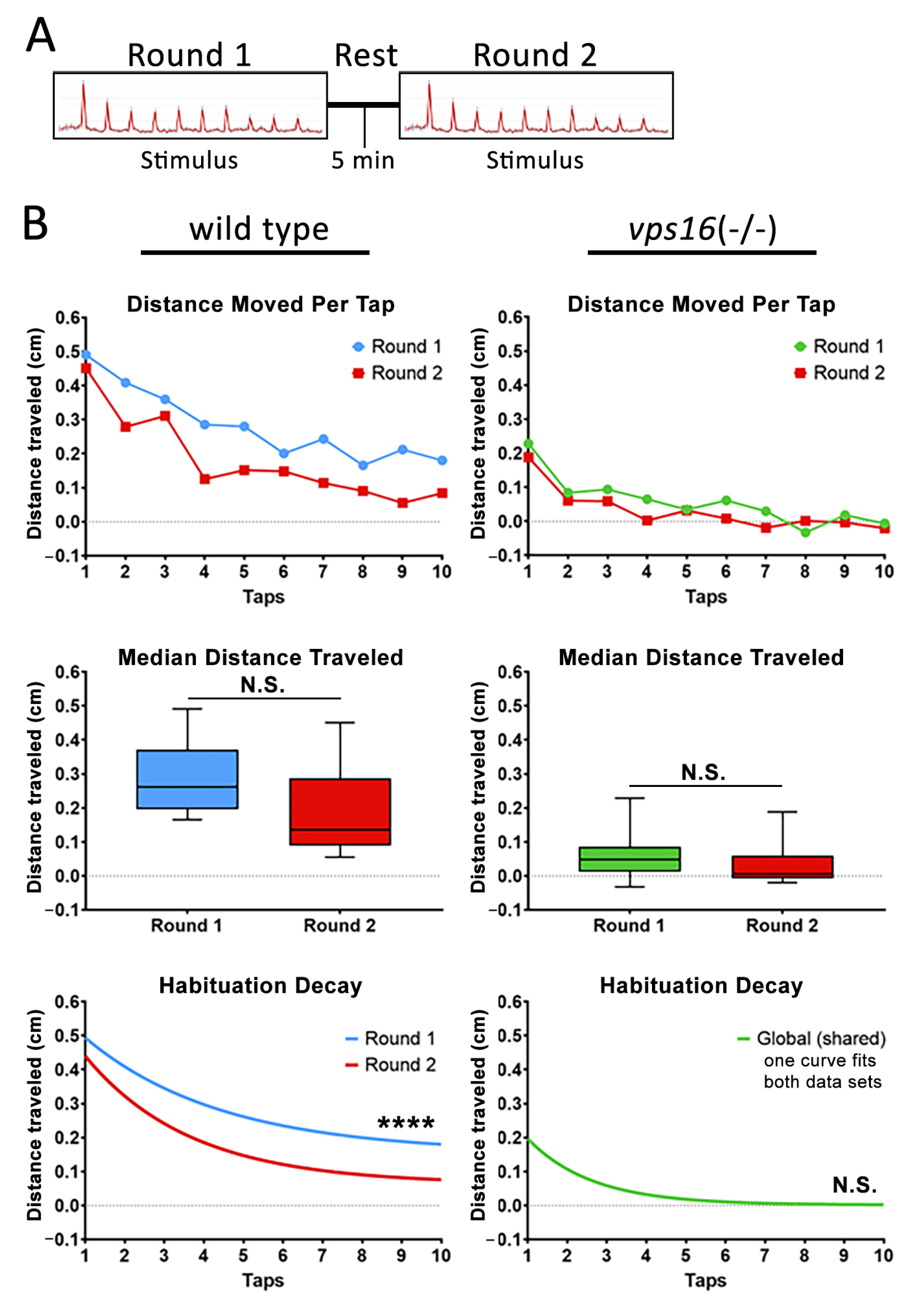Fig. 8 Sibling larvae at 7 dpf do show distinct habituation response post 5 min rest, but vps16(-/-) mutants do not show distinct response. (A) Schematic representation of intermediate memory paradigm showing round one stimulus having 10 high-intensity taps, followed by 5 min rest period with no stimulation, and finally round two stimulus having 10 high-intensity taps. (B) Line graph representing average distance traveled in response to each individual tap by 7 dpf siblings (blue, n = 60) and vps16(-/-) mutants (green, n = 59) larvae before and after 5 min rest period (red). Box plots representing median distance traveled by 7 dpf siblings (blue, n = 60) and vps16(-/-) (green, n = 59) larvae in response to multiple-tap stimuli before and after 5 min rest period (red). First-order exponential decay curve representing average distance traveled in response to round one multiple-tap stimuli by 7 dpf siblings (blue, n = 60) and vps16(-/-) mutant (green, n = 59) larvae before and after 5 min rest period (red). For all graphs, ?N.S.? = not significant, ?****? = p < 0.0001, and error bars indicate SEM.
Image
Figure Caption
Figure Data
Acknowledgments
This image is the copyrighted work of the attributed author or publisher, and
ZFIN has permission only to display this image to its users.
Additional permissions should be obtained from the applicable author or publisher of the image.
Full text @ Int. J. Mol. Sci.

